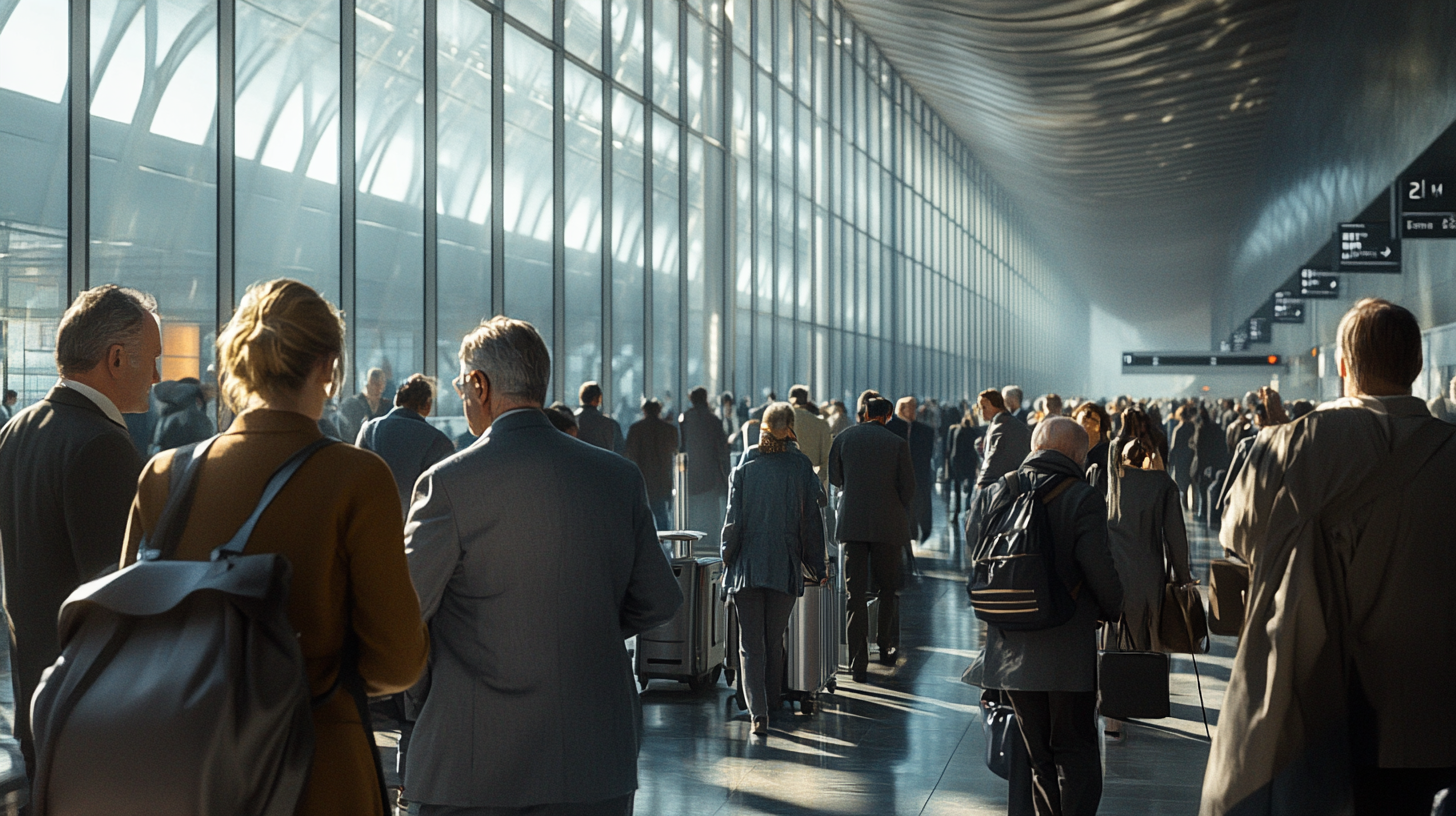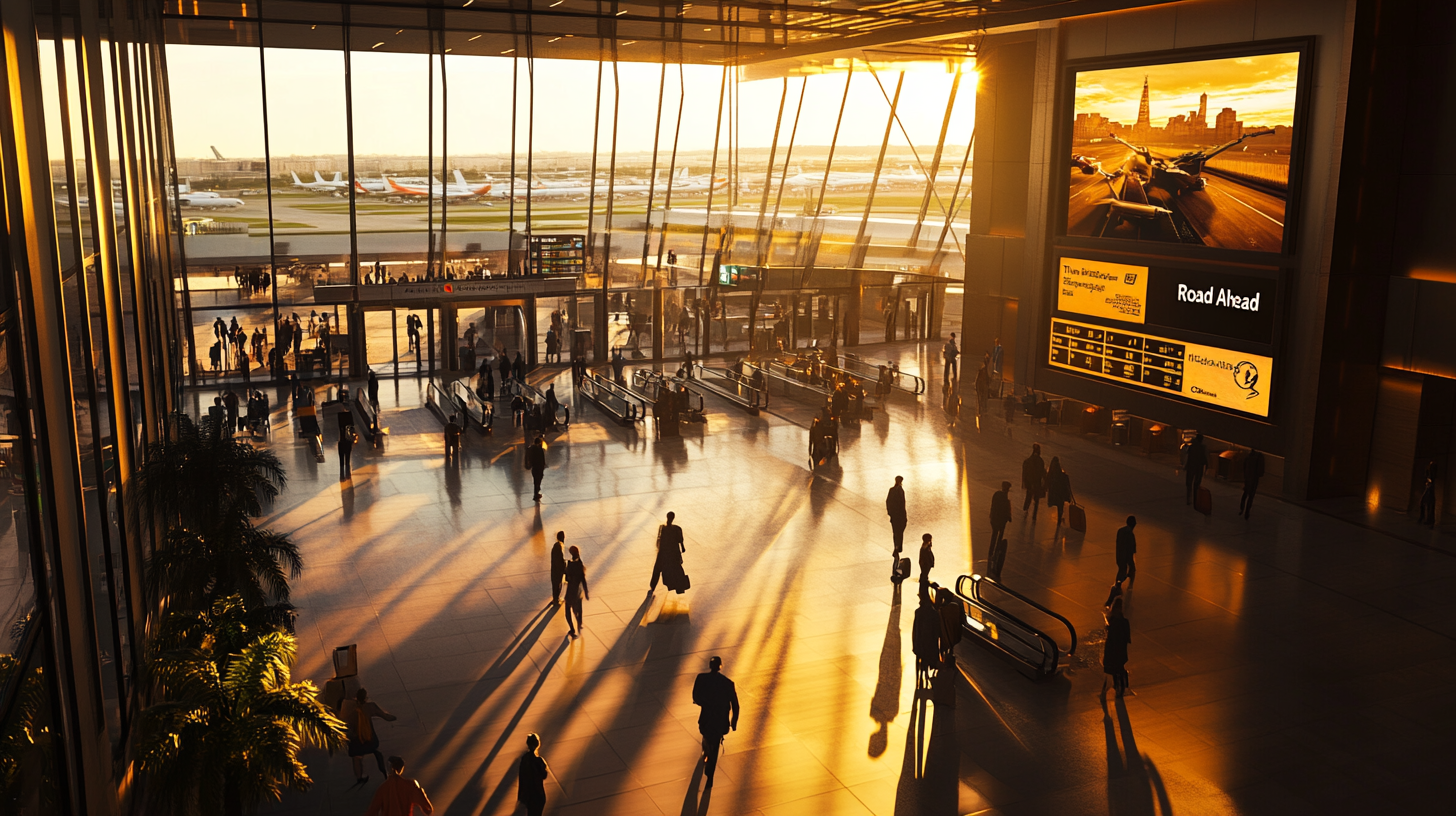Business Travel’s Steady Ascent

Business travel has certainly had its ups and downs in recent years, but I’ve found new optimism in the air. According to a 2024 Global Business Travel Association forecast, corporate travel spending could surge to $1.4 trillion by next year, underscoring the industry’s remarkable ability to bounce back. In my own journey, I’ve encountered business travelers who are booking flights again to connect, innovate, and sign deals in person—proof that face-to-face collaboration still has a unique spark.
Good News on the Horizon

Stepping into 2025, I’m witnessing a resurgence of confident corporate flyers. A recent study suggests that business travel could climb to 95% of its 2019 volumes by the end of this year. That’s a striking turnaround considering how drastically travel dropped during the height of global restrictions. In my experience, many companies are fueling this uptick by gradually reopening offices and hosting in-person events ranging from strategy meetings to large-scale conferences.
I’ve also observed that hotel bookings in major urban areas continue to climb, reflecting a renewed appetite for midweek corporate stays. Even tech firms, known for remote-friendly cultures, appear eager to ramp up their road warrior schedules. This shift emphasizes the intangible benefits of live interaction—shaking hands, sharing ideas over dinner, and fostering genuine rapport that Zoom calls just can’t replicate.
As we aim for a near-complete rebound, it’s worth noting that the travel sector is still taking measured steps. Most corporate travel policies remain cautious, focusing on the balance between cost control and the need for real-world connections. Nevertheless, the horizon looks brighter than it has in years.
The Cost & Sustainability Factor

Along with this surge comes a modern set of cost and sustainability pressures. I’ve seen firsthand how organizations are assessing their travel budgets with a sharper eye. Rising airfares, stricter policies, and eco-conscious goals are all pushing corporate leaders to think strategically before booking flights. A 2023 Deloitte study found that nearly 80% of companies now have specific sustainability benchmarks tied to their travel programs. In my opinion, these benchmarks are signs of a more thoughtful approach to business trips.
On the sustainability front, companies are taking concrete steps like partnering with carriers that use sustainable aviation fuel and encouraging employees to choose trains for shorter hops. I’ve already experimented with a few alternative routes myself, weaving in remote workdays to reduce the total number of flights needed. It’s a shift toward purposeful, responsible travel that values both bottom-line results and the broader environmental impact.
From my conversations with industry insiders, I sense a mutual understanding that budget and sustainability initiatives can coexist. By focusing on metrics like ROI per trip and evaluating each business meeting’s strategic value, leaders find new ways to justify flights while meeting corporate social responsibility targets.
Tech Giant & Fortune 500 Momentum

Over the past year, I’ve noticed a tangible shift in how major corporations view travel. While some tech companies had championed remote work, inter-company collaborations and big product launches have started bringing employees back together in person. According to industry data, nearly 60% of Fortune 500 companies plan to increase their travel budgets in 2025 for conferences, trade shows, and client visits. It’s a clear sign that physical gatherings still hold a special place in corporate strategy.
In my experience, these companies see in-person events as critical for building brand presence, cultivating fresh ideas, and sealing deals that require personal rapport. I’ve attended a few of these tech summits and observed firsthand how dynamic the energy can be—from spontaneous brainstorming sessions in hallways to on-the-spot demos that simply can’t happen over a screen.
Airlines have kept pace by restoring more frequent business class routes and investing in upgraded lounges. I’ve spoken to representatives from carriers like Delta who report a steady uptick in corporate group bookings. All signs point to a business travel ecosystem that is eager to keep moving forward.
Growing Emphasis on Hybrid Work

As hybrid work models take deeper root, the landscape of office attendance is increasingly varied. I’ve spoken with remote-first colleagues, traditional office-dwellers, and part-timers who only drop in for special projects. These different workstyles mean we’re seeing a wider range of travel patterns—from short-haul flights to bring regional teams together for monthly meetups to long-haul journeys for critical summits.
Personally, I’ve found that bleisure (business + leisure) trips are more popular than ever. People love tacking personal exploration onto work-related travel, often extending their stays over weekends. It’s a trend that encourages cultural immersion and fosters a more relaxed approach to productivity. In some cases, these extended stays help travelers adjust to time zones, reduce jet lag, and get better acquainted with local partners.
Even with a focus on purposeful trips, there’s still an element of spontaneity in how professionals blend in-person gatherings with day-to-day tasks. I’ve encountered folks who schedule coworking sessions offsite to recharge creativity, bridging the gap between remote and on-site work in imaginative ways. This hybrid mindset not only broadens perspectives but often leads to out-of-the-box ideas and collaborations.
The Road Ahead

Despite its encouraging trajectory, business travel isn’t immune to hurdles. According to the U.S. Bureau of Labor Statistics, labor shortages in the hospitality and aviation sectors persist, sometimes resulting in flight delays and limited service options for travelers. Add in ever-changing travel regulations, and you get a climate that demands plenty of adaptability and patience. In my own travels, I’ve learned that flexible booking policies and trip insurance can be the keys to smoother journeys.
On the health front, experts stress the importance of continuous awareness around new virus variants and vaccination guidelines. I’ve personally come to appreciate how thorough travel policies can protect both employees and the communities they visit. Clear communication—whether it’s through internal memos or traveler updates—helps ensure everyone stays safe and informed.
Yet despite these challenges, I see momentum building toward a future where business trips play a more deliberate and strategic role. Companies refining their travel philosophies increasingly focus on measurable outcomes and robust duty-of-care protocols. The result is an industry poised to innovate, adapt, and thrive.
Final Thoughts

Given the upswing in corporate travel and the growing emphasis on sustainable, purposeful journeys, it’s clear we’ve entered a new phase of evolution. In my view, this isn’t just about returning to the pre-2020 status quo. It’s about redefining travel strategies to be more mindful, efficient, and globally conscious.
Whether booking flights for critical face-to-face deals, brainstorming future tech solutions, or exploring new destinations to spark creativity, business travelers now have more resources and data-driven insights than ever. I see immense potential for continued growth so long as we remain focused on health, well-being, and the tangible gains that only in-person interaction can deliver. The journey ahead may be complex, but it’s also incredibly exciting.
Amelia Yeaher’s Take
This renewed wave of business travel symbolizes a shift toward purposeful connection—an era where each trip is measured not just by cost-benefit, but by the human encounters it unlocks. From my perspective, the cultural exchanges, networking, and spontaneous collaborations I’ve experienced are worth every mile.
In a world shaped by technology and innovation, I’m inspired to see how corporate flyers are blending digital convenience with the warmth of face-to-face engagement. It sets the stage for a future where travel is truly transformative, ensuring every journey leaves a lingering spark of inspiration.






